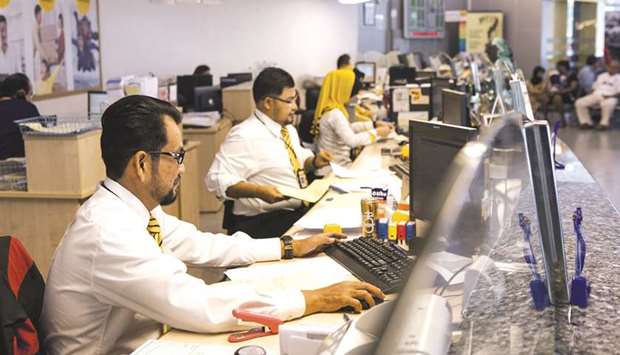The global market for core Islamic banking software solutions for banks – notably, not including products from fintech startups – is a rapidly growing segment seen increasing by around 13% annually from now until 2021 to around $700mn, according to latest industry reports. This is pretty much in line with expected growth in the Islamic finance industry.
Islamic banking software refers to banking software that functions according to Shariah norms for managing and monitoring banking operations and therefore has to have distinctive features that conventional banking software does not provide. Islamic banks, working with Shariah scholars, in the past have created a set of requirements of specifications for such software to meet the financial needs of their customer base while insuring adherence to the principles of Shariah.
At first, such specialised banking software was developed by banks themselves in co-operation with local IT vendors, but over time, globally operating software providers entered the business and started creating scalable Islamic banking solutions at a larger range.
Today, there are a few key providers of Islamic banking software which are Infosys, Tata Consultancy Services, Path Solutions, Oracle, Temenos, Sopra, SAB Group, Nucleus Software, ICS Financial Systems, Virmati and Finastra, and a number of specialised vendors such as AutoSoft Dynamics, Infopro, BML Istisharat, International Turnkey Systems, Infrasoft Technologies, Silverlake, Intertech, Leadsoft, among others.
As the key standards of Islamic banking software are that it needs to adhere to Islamic finance principles, providers and vendors therefore have to take into account the following issues: Inconsistencies in allowable products between countries and regions; interpretation of Islamic laws relating to banking; demand for new product capabilities as banks define new Shariah-compliant services; Islamic banking contract documentation; compliance with the standards of the Accounting and Auditing Organization for Islamic Financial Institutions, or AAOIFI; as well as non-Shariah issues such as inconsistencies in the Arabic language and different languages among Muslim-populated countries, as well as requirements in some countries to support the lunar Islamic calendar.
Other specific solutions for Islamic banking software span over retail banking and corporate banking, capital markets, brokerage, investment banking, treasury, sukuk issuance, fund management, wealth management, as well as customer relationship management, client analytics, human resources and payment applications, transaction safety and security, risk mitigation and money laundering and fraud prevention.
Other important sectors are Islamic financing and leasing (for which Path Solutions, an Islamic banking software provider with one of the largest market shares globally, is well-known) and takaful (for which, for example, Temenos has a dedicated solution, whereas a number of smaller software firms such as CommVault or Agile specialize in takaful platforms).
The trend to online and mobile banking has also brought challenges for Islamic banks, as well as the fact that a younger generation of digital consumers has turned to social media to interact and seek opinions on products, including banking services. This has led software providers to create Shariah-compliant software platforms for specific segments and client groups, while they more intensively cooperate with fintechs to find innovative solutions for digital-savvy clients such as new banking apps and services, including robo-advisory and computer-aided investments.
It is expected that the market for Islamic banking software will grow further at a high rate beyond 2021 as Muslims continue to align their savings, investments and financing needs with Islamic principles, while more and more non-Muslims discover the benefits of participation or ethical banking that Islamic banking epitomizes.
Global software providers are expected to keep gaining market share with Islamic banking software products due to the flexibility, scalability and customer service features of their systems, but there will be a far more intense cooperation with fintechs and banking software startups in the future to reach out to new customers through innovative digital channels and banking solutions.

Employees work at a service counter inside a combined Malayan Banking Bhd (Maybank) and Maybank Islamic Bhd bank branch in Kuala Lumpur (file). It is expected that the market for Islamic banking software will grow further at a high rate beyond 2021 as Muslims continue to align their savings, investments and financing needs with Islamic principles, while more and more non-Muslims discover the benefits of participation or ethical banking that Islamic banking epitomises.
